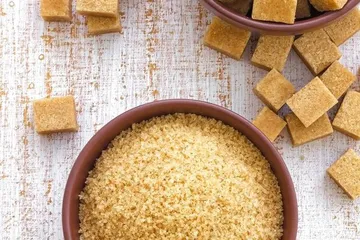Do you really understand sugar substitutes?

Many people think that sugar substitutes are sweet, but they do not have as calories as sugar and are healthy; others hold the opposite view, believing that sugar substitutes are mixed with some chemical raw materials, which can instead be the source of disease. What kind of substance is that sugar substitute? Let's talk about sugar substitution.
What is a sugar substitute?
Sugar substitutes, literally, are not difficult to understand their meaning, which are substances that replace sugar. In fact, sugar-free foods are foods without added monosaccharides or disaccharides, that is, they contain no sucrose at all. Therefore, sweets that do not contain sugar or "don't eat fat" are generally added with sugar substitutes. Generally speaking, the types of sugar substitutes can be roughly divided into two categories: the first category is nutritive sugar substitutes, and the second category is non-nutritive sugar substitutes.
How many kinds of sugar substitutes are there?
According to GB2760 -2011 "Standard for the Use of Food Additives of the People's Republic of China", a total of 15 non-nutritive sweeteners are allowed to be added to food. Generally speaking, we can divide sugar substitutes into three categories: natural sweeteners, sugar alcohols, and artificial sweeteners.
Is sugar substitutes healthy?
Sugar substitutes can be eaten, but pay attention to the amount. Take aspartame as an example. The sweetness of this sugar substitute is very high. Just a little bit can sweeten it. It is indeed healthier than direct intake of sugar. But this does not mean that sugar substitutes can be consumed in unlimited quantities. Many sugar substitutes have their own drawbacks. For example, excessive intake of xylitol may cause diarrhea or gastrointestinal disorders, and may also cause elevated triglycerides in the blood.
What are the relatively safe sugar substitutes?
stevia
Some recent studies have shown that stevia can help lower blood pressure and blood sugar. So far, there have been no reports on the side effects of stevia.
of maltitol
Sugar alcohol extracted from plants (corn). Its calories are half that of sugar and it has a certain sugar-raising effect. GI: 36. Many people experience diarrhea while eating maltose, and a slight excessive consumption can cause blood sugar and insulin to rise, so it is not recommended for the time being.
inulin
Inulin cannot be digested and absorbed by the human body, but it can allow probiotics in the intestines to eat well. Inulin can not only be used as a sweetener, but also has the effect of relaxing the intestines, so the advertisements for inulin sold on a certain treasure are all "natural dietary fiber."
Suggestions for eating sugar substitutes
1. Use in moderation
If it is unavoidable, reduce the amount of sugar substitutes used as much as possible.
2. Choose varieties wisely
Try to choose the natural, relatively safe sugar substitutes we mentioned above that have a low glycemic index and low carbohydrate content.
3. read the label
For products labeled "low sugar" or "sugar-free," develop the habit of reading food labels, especially the "Ingredients List" column, and try to avoid harmful sugar

[Benefit: Come and see how you should lose weight?]
Want to lose weight healthily? Want to know what is the right way to lose weight for you?